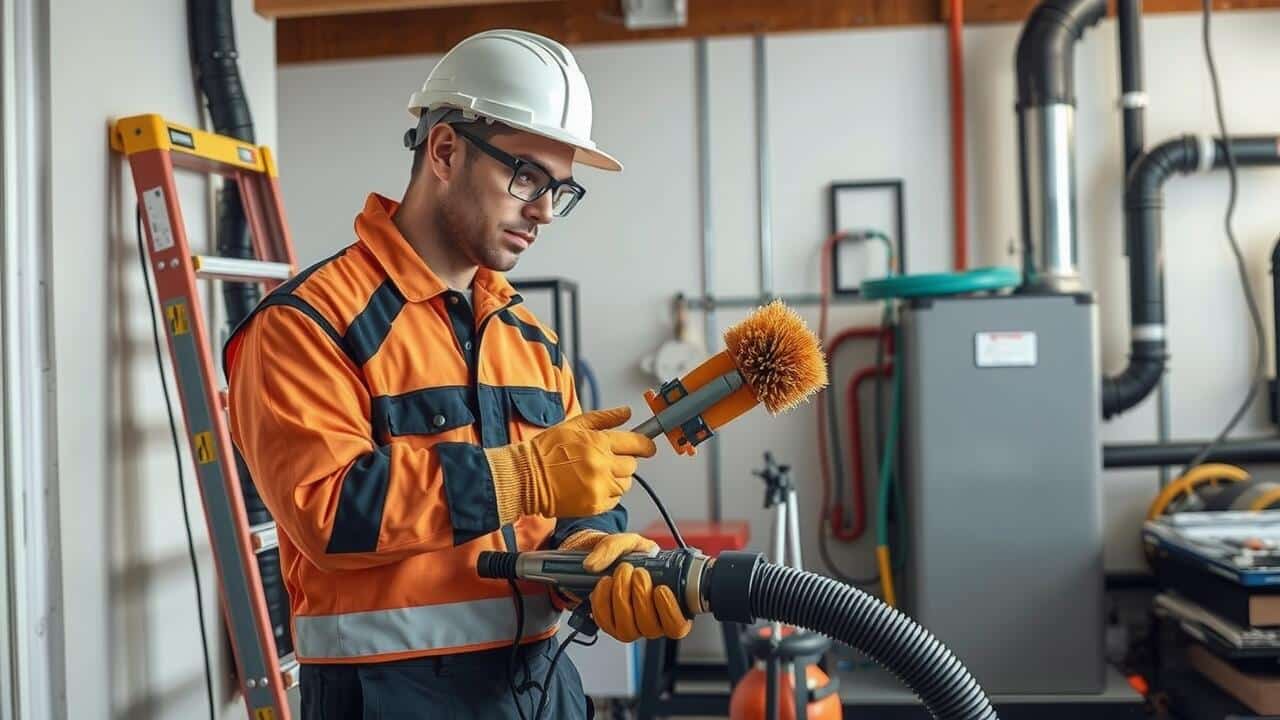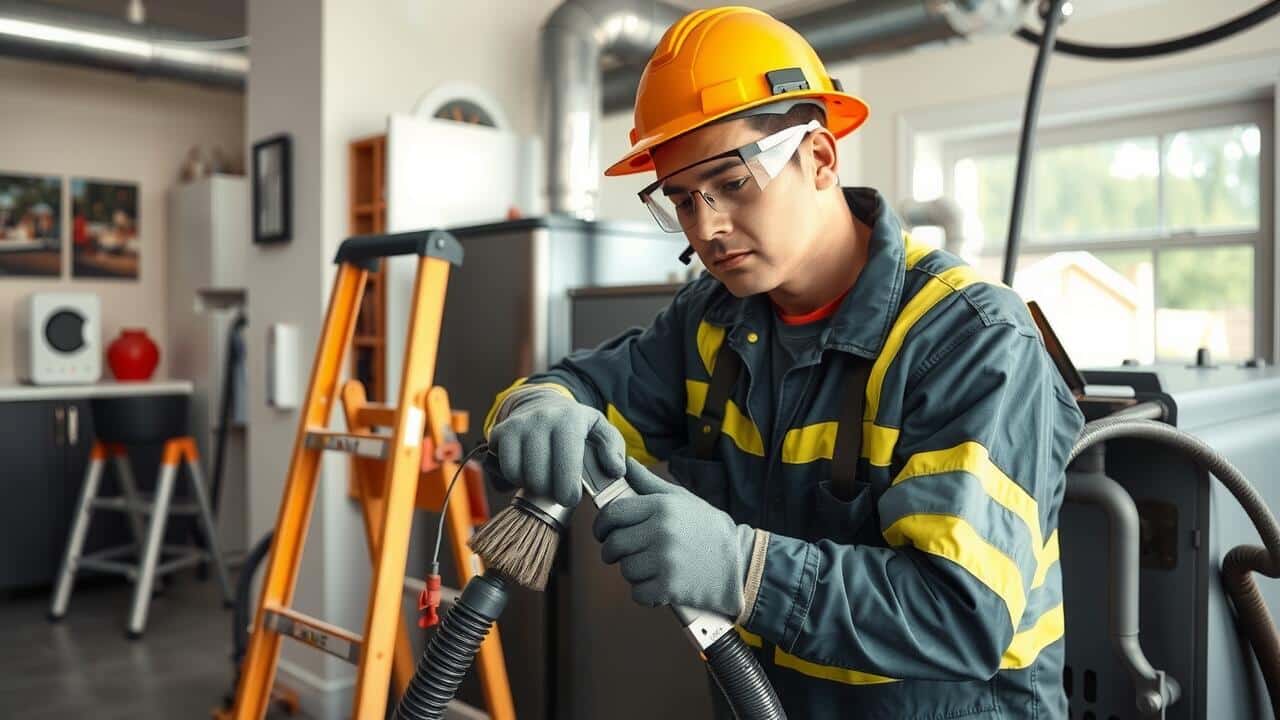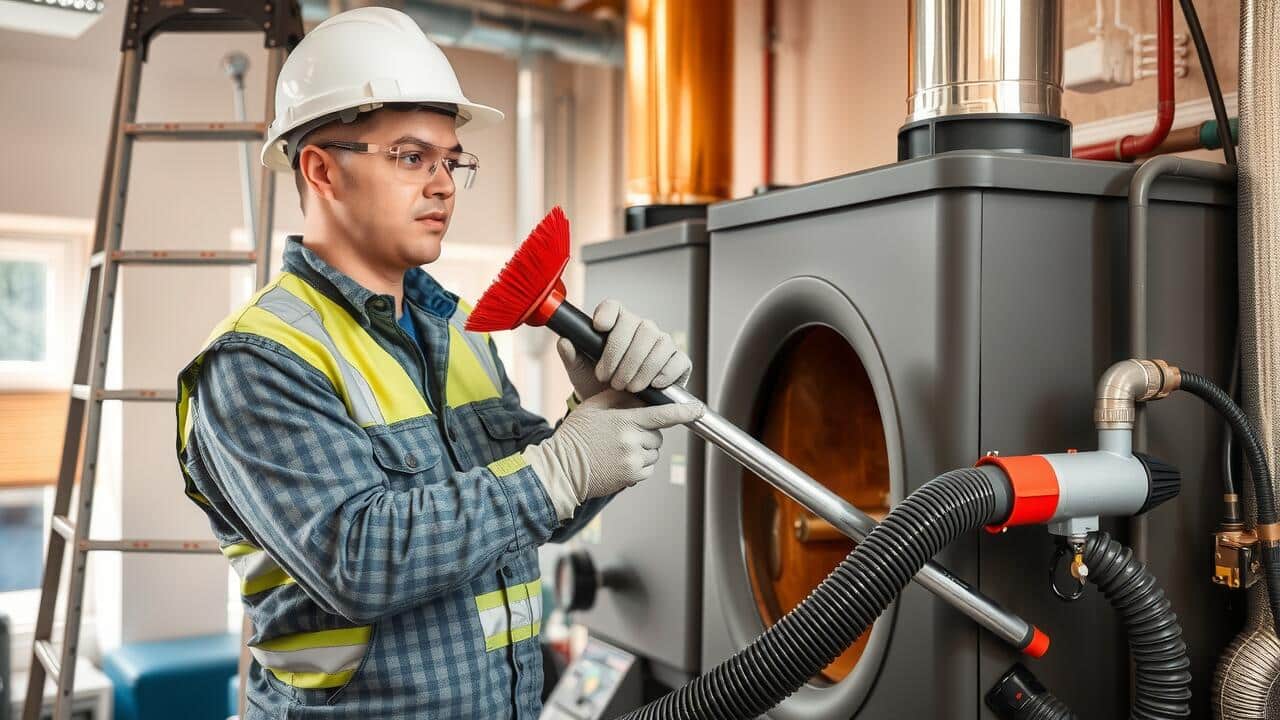Table Of Contents
Tools Required for Chimney Cleaning
When undertaking boiler chimney cleaning, having the right tools is essential for effective maintenance. Start with a sturdy chimney brush that can handle the diameter of your chimney flue. A flexible rod set is also important; it allows for reaching deeper areas that may otherwise be difficult to access. Additionally, protecting your surrounding areas with drop cloths or tarps is advisable to catch any soot or debris that may fall during the cleaning process.
Safety gear should not be overlooked during boiler chimney cleaning. A dust mask or respirator can help prevent inhalation of harmful particles. Safety goggles will protect your eyes from dust and soot. Gloves are important for keeping your hands clean and safe as you handle the brushes and rods. Having a vacuum specifically designed for ash and soot can also make cleanup easier. Proper preparation with these tools can ensure a thorough and safe cleaning experience.
Essential Equipment for the Job
When preparing for Boiler Chimney Cleaning, having the right equipment is crucial for effective maintenance. A chimney brush specifically designed for the size of the flue ensures that debris is efficiently removed. A sturdy extension pole allows users to reach the higher sections of the chimney, while a vacuum equipped with a filter keeps soot from contaminating the surrounding environment. Gloves and safety goggles are essential for protecting personal safety during the cleaning process.
Additionally, a smoke detector and carbon monoxide detector are highly recommended during Boiler Chimney Cleaning in order to monitor air quality. This equipment helps to ensure a safe atmosphere while working, especially when tackling potential blockages. A flashlight can also come in handy, providing good visibility within the dark confines of the chimney. Having these tools at your disposal not only simplifies the cleaning process but also enhances overall safety.
Common Cleaning Methods for Boiler Chimneys
Several effective methods are available for boiler chimney cleaning that ensure your system operates efficiently. One common technique is to utilize a chimney sweep brush, which can be manually scrubbed or attached to a drill for easier cleaning. This approach helps remove soot and other buildup from the inner walls of the chimney. Homeowners often opt for this method because it is relatively straightforward and can be performed with basic tools.
Another popular option for boiler chimney cleaning in residential properties involves using a vacuum system specifically designed for this purpose. These vacuums are equipped to capture the debris created during the cleaning process, minimizing mess. Foam cleaning solutions may also aid in breaking down stubborn deposits, making it easier for the vacuum to remove debris. Regular maintenance with these methods not only enhances the lifespan of the chimney but also helps maintain safe operation of the boiler.
Overview of Effective Techniques
Regular maintenance is crucial for efficient operation, and several effective techniques are available for boiler chimney cleaning. Mechanical brushes are widely used, as they can reach the interior surfaces and scrub away buildup effectively. These brushes come in various sizes, allowing for adjustments based on chimney dimensions. Additionally, high-powered vacuums can complement this method by sucking up loose debris and soot that accumulate over time.
Another technique involves using chemical cleaners designed specifically for chimney applications. These products help break down the residue and can aid in preventing further buildup. While many homeowners may consider DIY methods, hiring a professional for boiler chimney cleaning in complex systems can ensure thorough removal and adherence to safety standards. Using the right combination of methods can significantly enhance the chimney’s efficiency and longevity.
Potential Consequences of Dirty Chimneys
Neglecting the maintenance of boiler chimneys can lead to several serious consequences. A buildup of soot and creosote can obstruct the chimney, reducing airflow and preventing proper exhaust of harmful gases. This blockage may cause carbon monoxide to leak into living spaces, posing a significant health risk to inhabitants. Without routine inspection and cleaning, these dangers can escalate, resulting in costly repairs and potential legal liabilities.
Additionally, dirty chimneys can affect the efficiency of your heating system. When airflow is restricted, boilers work harder to generate heat, which consumes more energy and increases utility bills. Regular Boiler Chimney Cleaning in your home can help prevent these issues. Ensuring a clean and functional chimney not only promotes safety but also supports the longevity of your heating system, leading to better performance and decreased maintenance costs over time.
Understanding the Impact on Your Home
A dirty boiler chimney can lead to serious safety hazards in your home. The buildup of soot and debris can block the flue, increasing the risk of carbon monoxide poisoning. This odorless gas can seep into your living spaces, posing health threats to anyone inside. Regular maintenance and thorough cleaning are essential to avoid these dangers and ensure that your heating system operates efficiently.
Neglecting chimney cleanliness can also affect your home’s energy efficiency. A clogged chimney forces your boiler to work harder, consuming more fuel and driving up your heating costs. Investing time in Boiler Chimney Cleaning in your home not only enhances safety but also contributes to lower utility bills and better performance from your heating system. Regular inspections and cleanings can save you money in the long run while protecting your living environment from potential hazards.
FAQS
How often should I clean my boiler chimney?
It is generally recommended to clean your boiler chimney at least once a year. However, if you use your boiler frequently or notice signs of buildup, more frequent cleaning may be necessary.
What tools are required for cleaning a boiler chimney?
Essential tools for cleaning a boiler chimney typically include a chimney brush, a vacuum cleaner, protective gear, and possibly a ladder if access to the chimney top is needed.
What are the common methods for cleaning a boiler chimney?
Common cleaning methods for boiler chimneys include brushing, using a vacuum to remove debris, and chemical treatments. It’s important to choose a method that best suits the level of soot and debris buildup.
What are the consequences of not cleaning my boiler chimney?
Failing to clean your boiler chimney can lead to serious issues such as reduced efficiency, increased risk of chimney fires, carbon monoxide buildup, and potential damage to your home’s heating system.
Can I clean the boiler chimney myself, or should I hire a professional?
While some homeowners may choose to clean their boiler chimneys themselves using the right tools and techniques, hiring a professional is recommended for a thorough and safe cleaning, especially if you’re unsure of the process.



